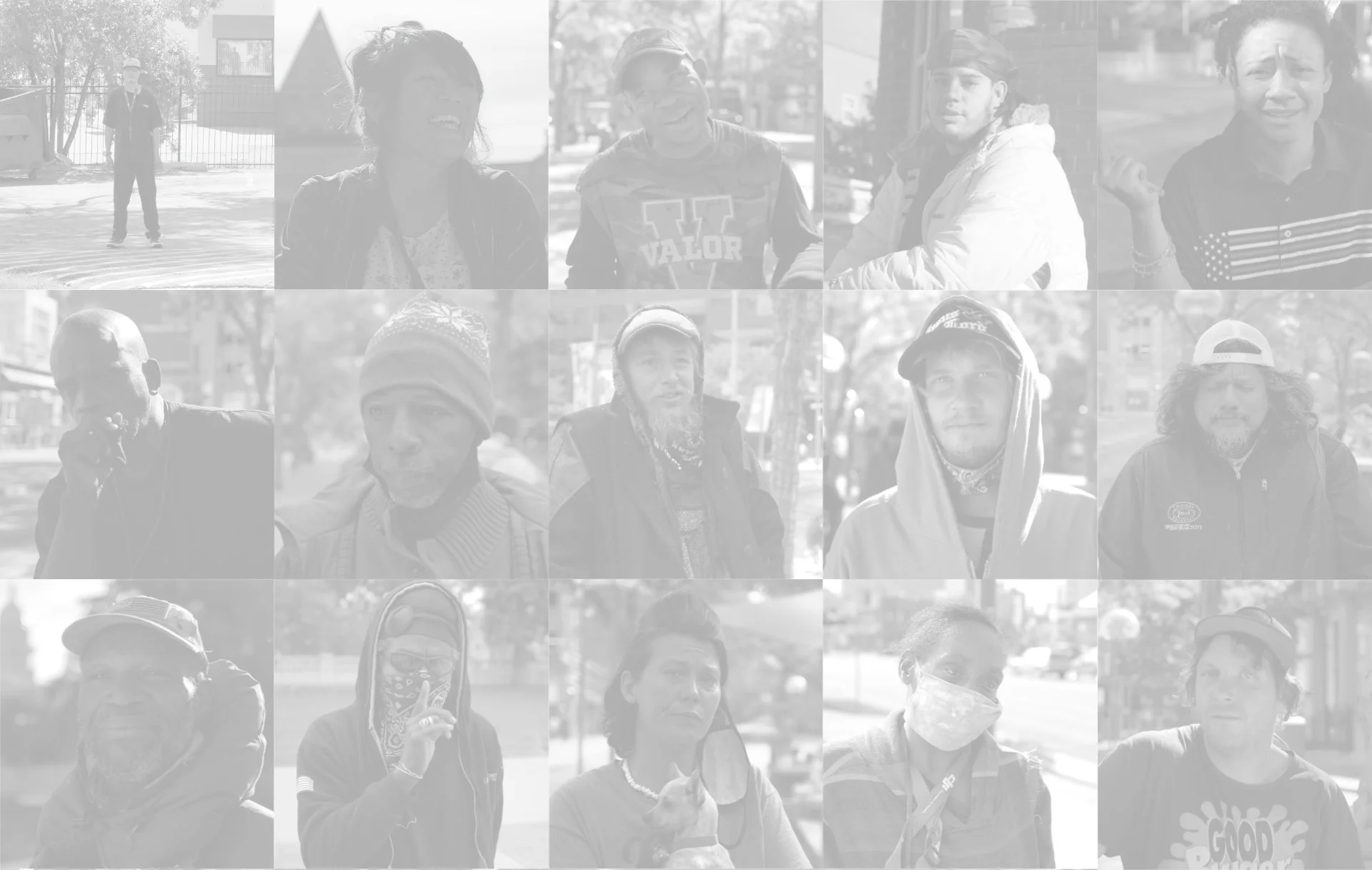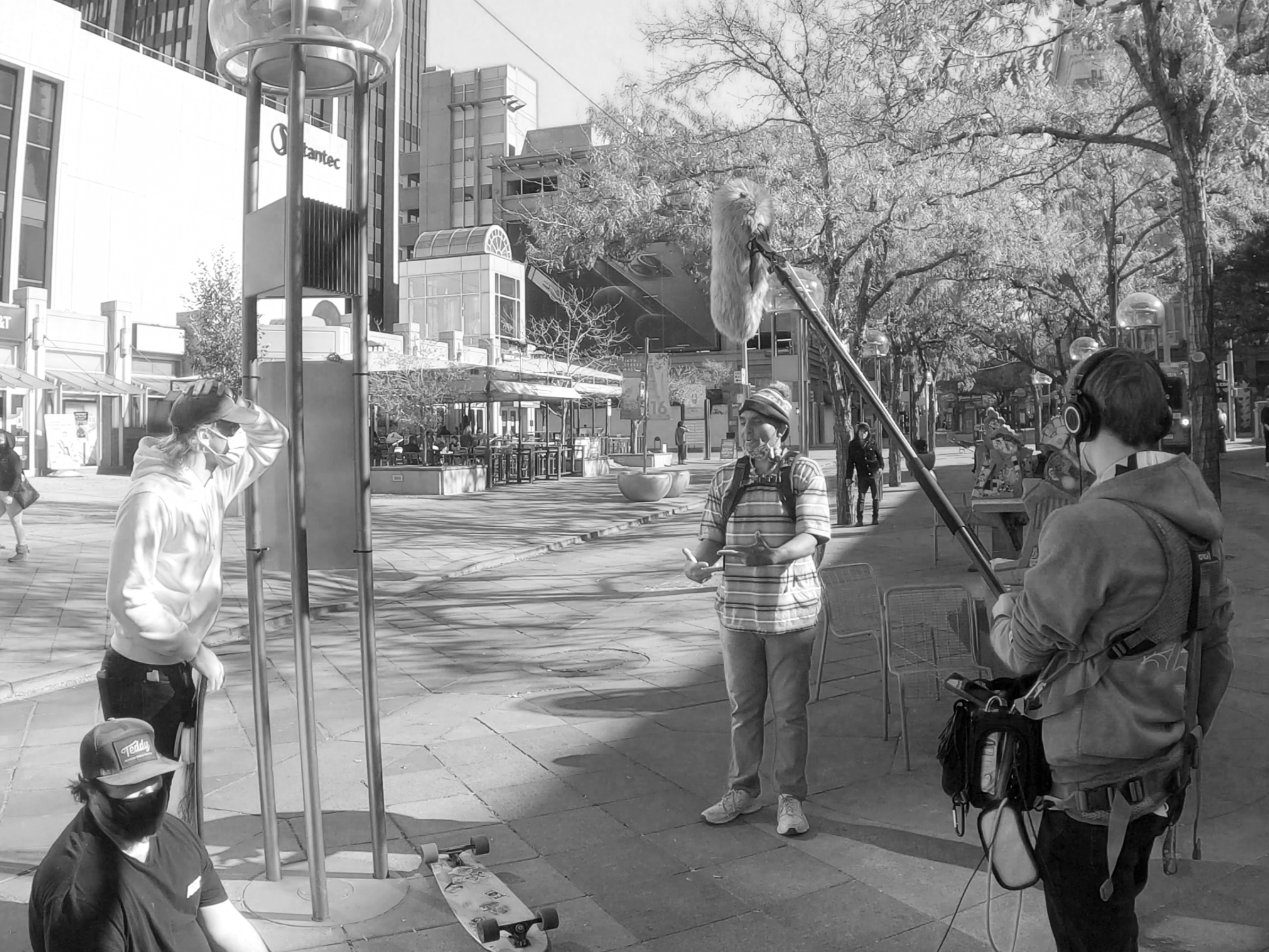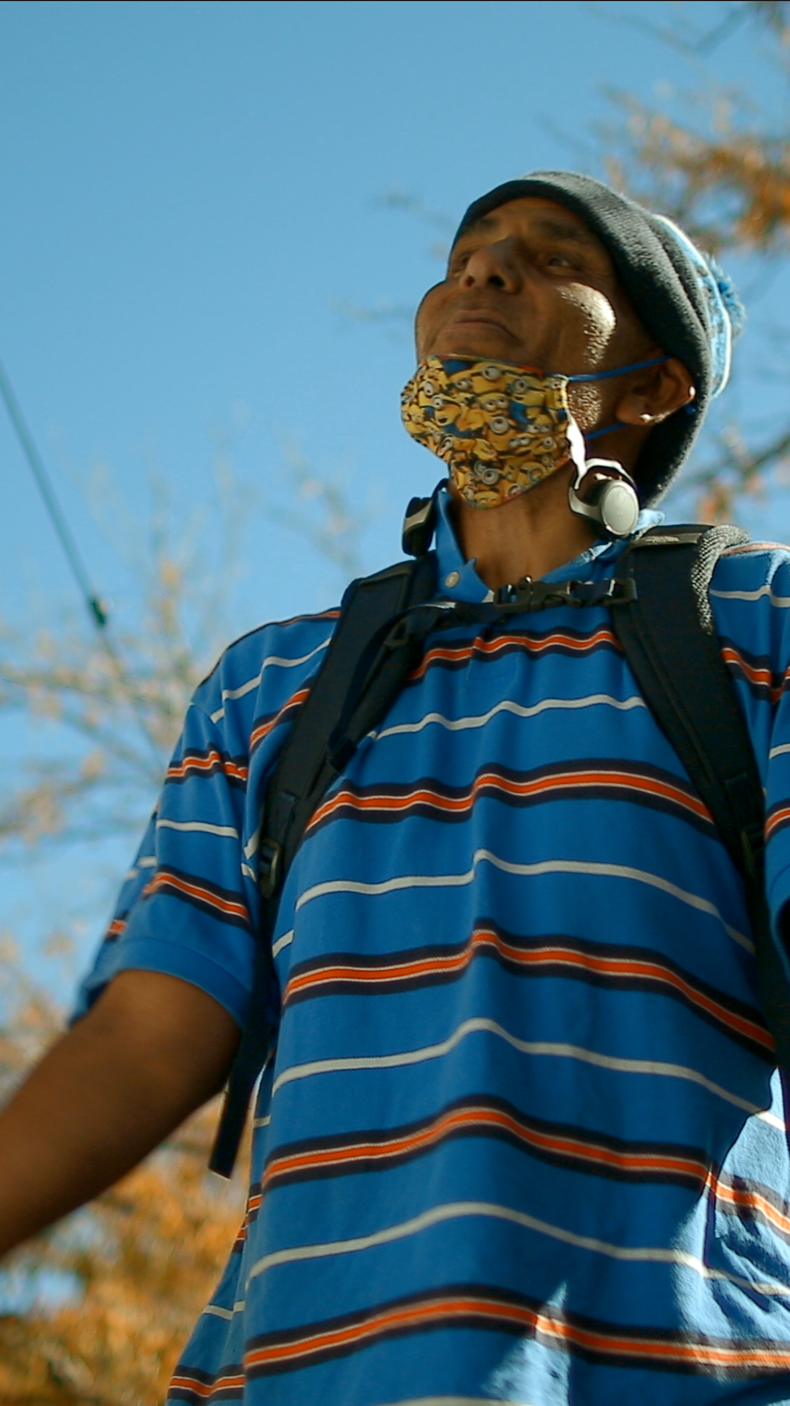
Kenny reflects on a life that began in Washington, D.C., where he left home at 17 and quickly learned survival outside the safety of family or community. He speaks of never fitting neatly into categories of race, identity, or culture, which left him solitary but also independent, able to find humor in absurdity as a way of coping. Kenny criticizes the unfairness of land ownership, homelessness laws, and systemic barriers that keep people without shelter from finding stability. He admits to drug use, but frames it as an escape from trauma and schizophrenia, which he has battled since adolescence.
Skateboarding and computers serve as his escapes and tools for helping others, and he tries to act as a mediator between groups in conflict. Kenny is deeply frustrated with policing and the hypocrisy of public attitudes, especially during the pandemic, but he emphasizes the need for dignity, fairness, and recognition that all people—regardless of status—have the right to exist and be treated as human.


